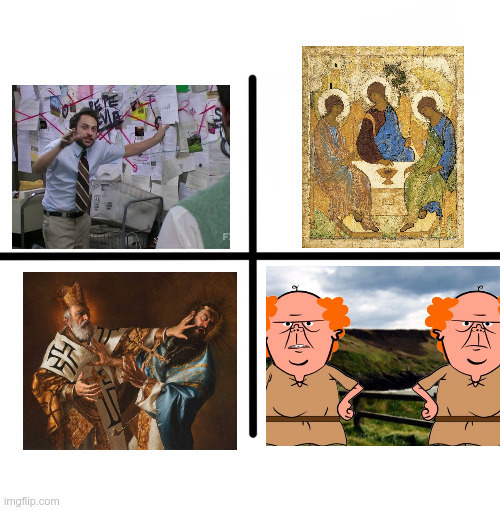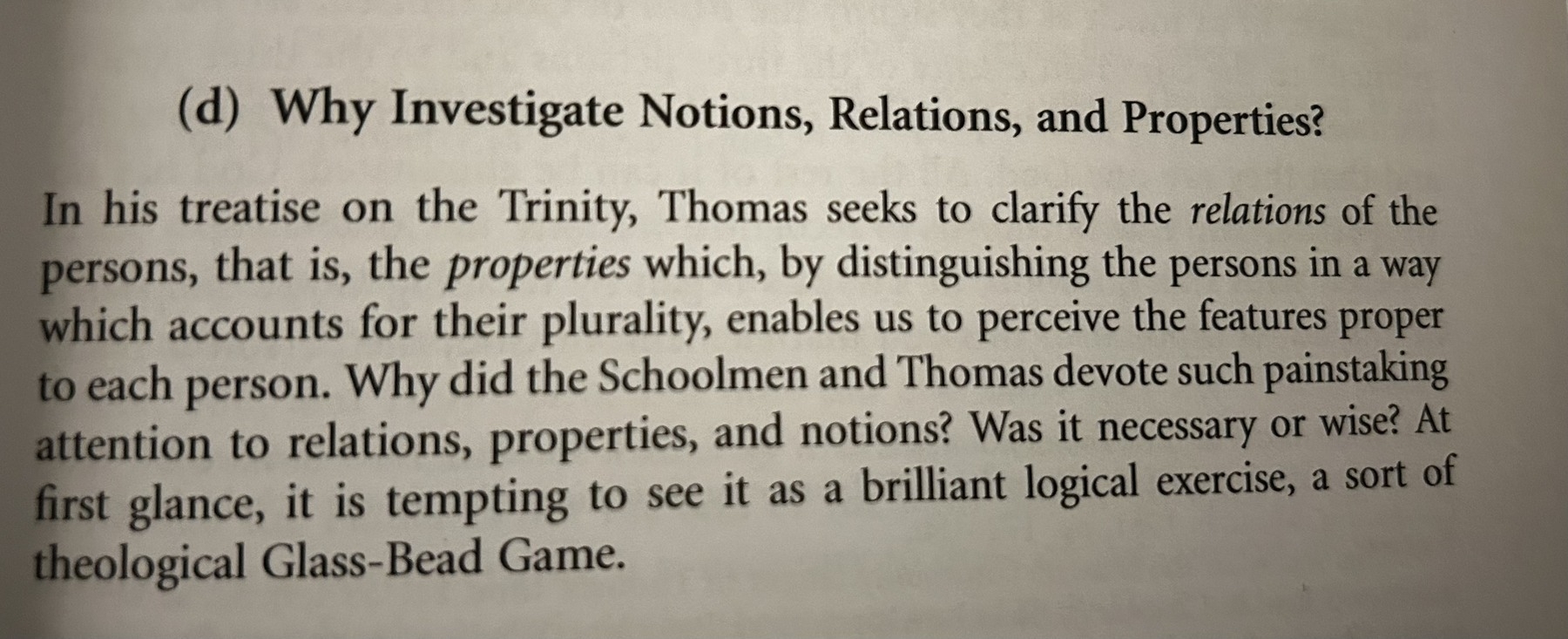Estoy empezando a soña en español como era joven y estudiante en la universidad. A veces practico en mente, describiendo cosas o conceptos teologicós, y por eso puedo contestar cuando hay preguntas sobre, por ejemplo, las ultimas cosas (el juzgo particular, etc). Esto pasó anoche en OCIA cuando terminamos la clase. Las otras catequistas ya saben que estoy preparando con estudios formales y frecuentemente refirén a mi las preguntas difíciles o complicadas. Bueno - aqui puedo tambien practicar como escribir (y lo siento si me falta acentos o otras marcas - no he configurado los caracteres…corto y pego desde otra terminal).
I subscribed to the paid version of Claude and want to give it a run for a bit. So far I like it. I had it review some stuff I had written and it came up with some pretty good suggestions and (probably not accidentally) a couple of compliments. Grist for the mill, so to speak. One thing I appreciate is the disclosure straight out of the gate that it won’t try to give precise citations (“which question in the Summa addresses XYZ,” for example). For larger, complicated issues it seems to do a pretty good job of breaking them down and some occasional serviceable synthesis of ideas.
I pasted the full text of a Wikipedia article that I was having some trouble parsing. It confirmed my unspoken hunch about some bias and provided what I thought to be an ample theological response.
In this age of artificial intelligence, we cannot forget that poetry and love are necessary to save our humanity. No algorithm will ever be able to capture, for example, the nostalgia that all of us feel, whatever our age, and wherever we live, when we recall how we first used a fork to seal the edges of the pies that we helped our mothers or grandmothers to make at home. It was a moment of culinary apprenticeship, somewhere between child-play and adulthood, when we first felt responsible for working and helping one another. Along with the fork, I could also mention thousands of other little things that are a precious part of everyone’s life: a smile we elicited by telling a joke, a picture we sketched in the light of a window, the first game of soccer we played with a rag ball, the worms we collected in a shoebox, a flower we pressed in the pages of a book, our concern for a fledgling bird fallen from its nest, a wish we made in plucking a daisy. All these little things, ordinary in themselves yet extraordinary for us, can never be captured by algorithms. The fork, the joke, the window, the ball, the shoebox, the book, the bird, the flower: all of these live on as precious memories “kept” deep in our heart.
This profound core, present in every man and woman, is not that of the soul, but of the entire person in his or her unique psychosomatic identity. Everything finds its unity in the heart, which can be the dwelling-place of love in all its spiritual, psychic and even physical dimensions. In a word, if love reigns in our heart, we become, in a complete and luminous way, the persons we are meant to be, for every human being is created above all else for love. In the deepest fibre of our being, we were made to love and to be loved.
Pope Francis, Encyclical Letter Dilexit Nos, par. 20-21
Then came October full of merry glee:
For, yet his noule was totty of the must,
Which he was treading in the wine-fats see,
And of the ioyous oyle, whose gentle gust
Made him so frollick and so full of lust:
Vpon a dreadfull Scorpion he did ride,
The same which by Dianaes doom vniust
Slew great Orion: and eeke by his side
He had his ploughing share, and coulter ready tyde.
We are in the maddening time of the year when the outside looks like fall but feels like summer. The leaves are changing, there’s been frost in the morning but we’re still getting into the 80s during the day. I’ll rue these words come February, but I need autumn and winter to step on it.
Speaking of dreadfull Scorpions and the like, I noticed on Seek that Joro spiders have a couple of spots in Tennessee now, near Chattanooga and in a few other locations well to the west and east of here. This does not please me. I had been hearing about them from my folks in Atlanta for a while and got a chance to see them up close when I was down there a couple of weeks ago. I’m a live-and-let-live sort of person as regards spiders and whatnot, but these things are gross, and their webs are disgusting. I have not spotted any in our yard yet, but it’s only a matter of time.
Papers submitted. They’re out of my hands and commended to Almighty God and the instructors who will grade them. I will use my remaining brain cells to finish Gilles Emery’s books on the Trinity before class in a couple of weeks. I’m still on my long Borges kick and am revisiting the short stories in English but occasionally bouncing back to the Spanish versions too. Not sure what I’ll look at next, to be totally honest. The end of our formal studies is slowly coming into view, which means reading and study will return to (mostly) self-directed, though likely along three parallel tracks: leisure, ministerial/study, and spiritual. Speaking of:
Chautard on the interior life was exactly what I needed, and I recommend it to anyone else who is looking for the how and why of developing a habit of contemplative prayer. My spiritual director seems to be a fan of French spirituality; prior to Chautard, he had me reading Frances De Sales and Jacques Phillipe. Something about Chautard reminds me of Evagrius, though I’m unsure why. I think it’s the close association he makes between contemplative prayer and active charity and the absolute necessity of the former to carry out the latter. In any event, my morning prayer routine looks something like this:
- Office of Readings
- Morning Prayer
- Spiritual reading 5-10 minutes
- Contemplative prayer, 20 minutes
- Final prayer of thanksgiving and intent before wandering over to the office
I recently increased the time for contemplative prayer from 15 to 20 minutes; my goal is to get to 30, and I don’t think it will be terribly difficult. I use a timer to make myself accountable - originally to keep from quitting too soon. Now it serves to make sure I don’t stay in the chair too long! I can maintain this schedule just about every day of the week, though parts occasionally shift around if I’m serving mass early or, to be frank, feeling lazy on Saturday morning.
No nerd news for now. With a little more in the way of spare time I may start dipping back into radio stuff. I also promised myself a new game for the wintertime once schoolwork was done. I was weighing Rimworld and Dwarf Fortress and am leaning towards Rimworld right now. It seems easier to dip in and out of, and an online friend of mine who has played both agrees. I’m going to lay Factorio aside for now, though the new space expansion looks absolutely fantastic.

Currently reading: Collected Fictions by Jorge Luis Borges 📚. Bouncing back and forth between English and Spanish versions for language practice.
All three papers for my concluding exercise are done and in the can! I am well ahead of the 11/14 deadline and may peruse them one last time, but I’m generally satisfied with them. I feel so Augustinian at the moment I can’t even describe it.
The first paper is in the ‘revise and editing’ mode and hopefully close to done. Two more to tackle and am considering a slight pivot. I expected this would happen and think there’s enough time to pull off what I have in mind.
I took this in Costa Rica years ago but didn’t realize until later that day that this howler monkey was holding her baby. It’s become one of my favorite shots.


Currently reading: The Soul of the Apostolate by Jean Baptiste Chautard 📚
I gave this talk the other night to a high school youth group and was asked to supply the notes or a recording. All I had were crib notes, so I committed to writing everything down while it was still reasonably fresh. Here it is.
Why do we want the things we want? We want food when we’re hungry and water when we’re thirsty. We want shelter from the weather and other things along those lines. The thing is, nobody needs to tell us that when we’re hungry, the right thing to want is food. We already know this. It’s built-in. Ditto for water, shelter, and the other essentials of life.
For nearly everything else, however, we have to learn what to want, and we learn this by watching other people. We see what they want, and then we learn to want it too. The Greeks called this mimesis, which is similar to mere imitation but conveys something deeper, more complete - something trying to be perfect. Mimesis is neither good nor bad. It’s just a description of how we tend to act and learn to do the things we do.
A French thinker named René Girard spent a lot of time studying literature and mythology and he began to discover some patterns that he put together into a theory. His theory turns out to be pretty useful in understanding the way people act today and as more people have begun to discover his work, his ideas are getting a lot of traction. I won’t go into all of them in this talk but will focus on two of them which, I believe, are important for the ways we approach technology generally, and social apps in particular.
His first idea is that human desire has three parts: me, another person, and the thing we both want. It may be that the other person already has this thing, or maybe we’re both competing for it. If you’ve ever watched toddlers playing, you’ve seen this level of desire in action. Everyone is occupied with various toys until one child reaches for something that no one else is playing with. All of a sudden, that particular toy is the center of attention. Everyone wants it, even if nobody noticed it before. The room erupts in noise. Girard says that this is mimetic desire at work. The moment I see you wanting something, I want it too.
If you think about it, this idea makes perfect sense. It’s the reason athletes get big endorsement deals and advertisers use celebrities or other aspirational figures to kindle our desires. It’s the basis for the entire influencer economy online.
But, like the crowded playroom, it doesn’t take long for tensions to start rising. People who desire the same thing begin mirroring each other. I begin modeling myself on you to get the thing you have. You, in turn, begin modeling yourself on me because of what I want. You’ve maybe seen this in friend groups, where two people are on the outs because “so and so does nothing but copy me!” These tensions continue to rise and spread through the entire group or community, and will come to a point of crisis where they threaten to tear everything apart.
Girard’s second idea concerns what happens next. In many cases, the group, without realizing it, makes use of a escape valve to let out the tension. He called this the scapegoat mechanism. During this period of crisis, someone - usually someone who is somehow set apart from the others - is identified as the cause for the crisis. Things were going along just fine, someone says until so-and-so came along. After that, everything went to pieces.
Then a second person agrees. You’re right, they say. Things were pretty good. Then a third person joins, and a fourth. Can you see what’s happening? A group of people who were all fighting with one another a little while ago…are all suddenly on the same side. The tension starts to vanish and people begin feeling better. The only thing left to do is get rid of the person somehow and finish the job. In the stories Girard studied, this usually meant killing the person, but at a minimum, it meant exiling them from the community. When it was done everyone was sure that they had done the right thing. The cause of the crisis had been identified and removed, and see? Everyone feels good again, and everything is fine now…or at least until tensions begin to rise again, and the cycle is repeated.
You now know everything you need to know about the way the social media economy works, so now we can talk about your phones.
Nearly all of you raised your hands when I asked about mobile phones and applications: TikTok, Clash of Clans, Spotify, Instagram, and so on. Let’s take Spotify for a minute. If you’re a subscriber, you’re paying so much per month. You can run some rough math and figure out, based on the number of subscribers, how much they might be making. In reality, it’s a little more complicated than that, but we’ll keep it easy and just stop there. What about the other apps that were mentioned? It’s safe to say, I bet, that you’re not paying anything for them. Yet these companies are worth billions and billions of dollars. How can this be?
The simplest reason is that you are not the customer, since you’re not the one paying them. You’re the product. You’re what the company is selling. Everything you do, see, pause over, like, comment on, and share. Everywhere you go, everyone you talk to, and everything they like and share. All of this information about you is worth more than gold, and it’s the reason these companies are making so much money. They only make money while you’re using the apps, so they have very smart people - some of the smartest in the world - making sure you keep using them. You should probably know that even if you’ve never heard of Girard, these folks have. They know his books very well, and they use his theory to make a lot of money off of you. Google “rene girard silicon valley” and see for yourself.
They do this by doing the two things we’ve already discussed: giving us more things to want, keeping us angry and in a state of memetic crisis, and making it easy to find a scapegoat to release the tension. Tech generally, and social media in particular, remove a lot of the friction that might otherwise slow down the scapegoat mechanism. It’s one thing to accuse someone face to face; it’s quite another to do it via a DM, tweet, or Insta comment. We’re embodied people - we exist in real life, and authentic communication and relationships require an embodied element. Absent that, and we’re very quick to say the worst of things, pile on someone else, and kick them out of a group. Look around online at large social media sites and suddenly, it’s all you can see: groups fighting with one another over fault, or destroying themselves by infighting. The memetic crisis is perpetual online.
To be clear, it’s perpetual offline as well, but it tended to move a bit slower because embodied relationships have a certain thickness to them.
So now what? As a father, I’d love nothing more than to dump the whole mess into the deepest part of the ocean, but it’s simply not practical. This is the water you swim in, so I have a responsibility to be in it with you. But if you know what’s driving the mechanics of this whole thing, you can use it a little more wisely. So here are a couple of tips:
First, choose your models carefully! Imitating a friend or co-worker because you’re competing for the same thing can - and often will - lead to tensions and hurt, but mimesis needn’t be a bad thing. If your friend is trying to be a saint, “copying” them is no threat at all! Why not? Because she can’t use up all of God’s grace and leave none for you! Competing for something inexhaustible is the way to go.
Second, keep an eye on the rush to find the scapegoat. Now that you know about this, don’t be surprised if you start seeing it in action everywhere. I’d wager it drives most (all?) online drama these days. We want to make sure we don’t habituate ourselves to it, and bring the worst of the online world into our real, human relationships.
Here is a list of resources for learning more about René Girard and his theories. His books are not very long but can be somewhat challenging to read. He was an academic writing for other academics and built his theories over time and not as one grand, unified system. The two collections below are a good way to get started. Luke Burgis has studied Girard extensively and writes very well about navigating the world in light of these theories. And nobody discusses these ideas better than Bishop Barron.
- René Girard and the Social Media Swamp, by Bishop Robert Barron
- René Girard, Church Father, by Bishop Robert Barron
- Wanting: The Power of Memetic Desire in Everyday Life, by Luke Burgis
- All Desire is a Desire for Being, by René Girard (essential writings edited by Cynthia Haven
- The Girard Reader, by René Girard (edited by James Williams)
Was asked to speak to our high school youth group tonight about smartphones. What I think they expect is a screed about the evils of the internet, but what’s coming are the broad contours of mimetic desire, scapegoating, and how both are accelerated and intensified by online disembodiment.
Alan Jacobs writes about the diaconal charism rooted in the call of the first deacons:
So we see here the very common injustice that arises from people preferring members of their own cultural group to “others,” not realizing, or not accepting, that such distinctions are erased when one enters the Body of Christ. And when I consider what happened to David French in his family, I think: Every church needs deacons to do precisely what the first deacons did — that is, to give comfort and support to the people of God justly, that is, with no regard to differences in culture or race or politics, because, as Peter says a little later in Acts, “God is no respecter of persons” (Acts 10:34).
The key - the indifference he writes about - is, I think to be found to have its roots in another constituent part of diaconal spirituality, which is self-emptying (kenosis). I’ve been thinking about this a lot over the last few days, especially as I worked through spiritual reading suggested by my director and others over the last few years. Many of the books have been written by priests, and a few of them assume that the reader is also a priest. And so the advice and guidance in the book make perfect sense for a priest, but maybe not exactly for a deacon who is also married and holds a secular job.
This is not to say that the advice is misplaced, or that the reading can’t bear tremendous fruit. It does prompt the question of whether (and in what ways) the spiritual life of a deacon differs from priestly, monastic, or episcopal spirituality. Of course we should pray frequently and heroically, striving for a certain amount of consistent contemplative prayer. I also have a household to run, children to raise, and performance reviews to begin at work. Full acknowledging that priests have wall-to-wall schedules and endless demands of their own, it’s also fair to point out that the particular demands of married and family life are objectively different. It makes a sort of sense that the spiritual practices in support of them are also different, but I guess I’m not entirely sure how yet.
This could be just me overthinking again, though. Like the proverbial bee sampling from every flower along the way, I’ve fruitfully pulled bits and pieces from nearly all of the traditions I’ve studied. Maybe there isn’t one and, like everyone else, we have to sort out spirituality on our own. Feels like it might be worth a book or two, though.
OCIA team meeting tonight. It was good to get the band together to debrief last year and hash out the coming round. I’ll be alternating between the English and Spanish sessions so I can continue working on language skills and hopefully run some interference for our Spanish-speaking catechist who has been flying solo up until now.
Finished S2 of House of the Dragon last night. Afraid I have to join the chorus of “meh,” though I suppose this means S3 will be a real barn-burner (so to speak).

You dolphins and all water creatures, bless the Lord.
The weather at the beach turned out perfect, so the grandbabies ran completely amok, and of the three things I had planned - read, drink, work on papers - I only made any progress with two of them and you can probably guess which ones. Stendahl is a lot of fun so far. The painting is one of the ceiling panels in the chapter room of St. Meinrad Archabbey. This was apparently part of the original cloister and not originally open to the public. It’s still in use whenever the community meets in chapter for general monastery business or to elect a new abbot. The other panels are birds of the air, beasts wild and tame, hosts of the Lord, and so on. Moving from one end of the room to the other, you retrace The Song of the Three Holy Children.









